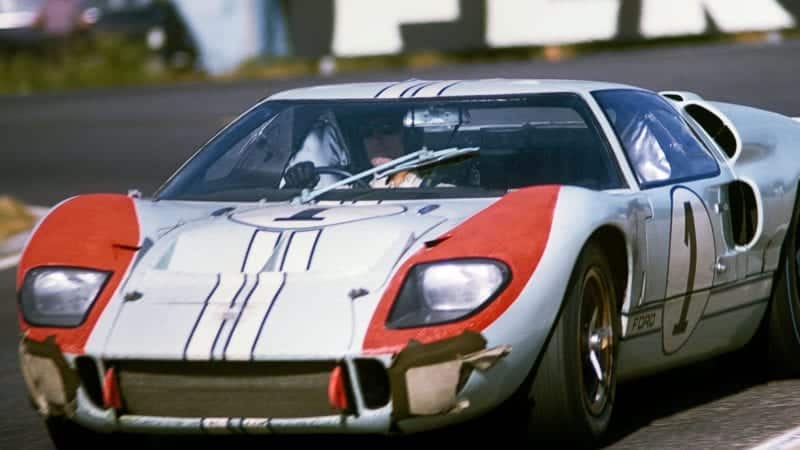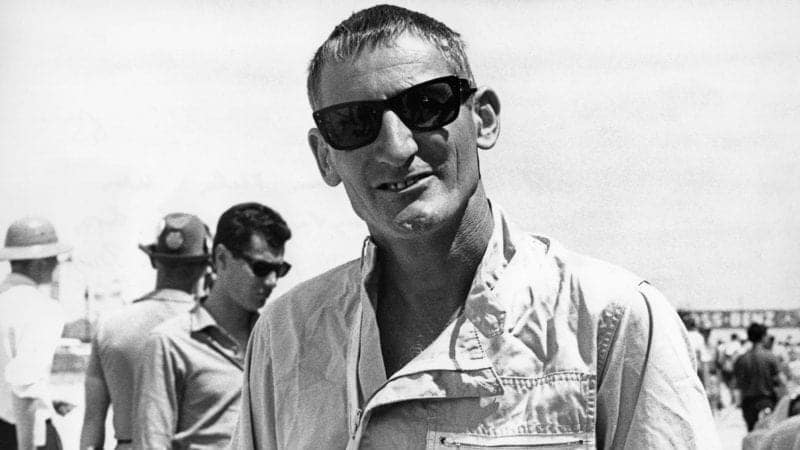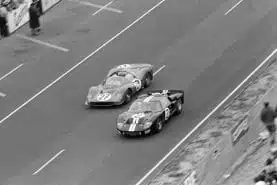He set up on his own in North Hollywood in 1960 and made Sunbeam Alpines go faster than they ought before knocking out the Tiger prototype. Work thinned – he had a generous streak and gave too much gear away – and Miles was unemployed and at a low ebb when he got the call from Carroll Shelby in early 1963.
Joining initially as his competitions manager – Miles was 44 already – Shelby needed Miles’ renowned chassis-sorting skills most of all, but ultimately could not deny him a race seat.
The wins continued to flow aboard Cobras – Miles had been an advocate of American muscle in a British frame since mating Mercury V8 flathead to chain-drive Frazer Nash in the late 1940s! – and the tag of small-car specialist was dropped. He could extract the max from any car – even one at the cutting edge of technology.

Miles at the wheel of the GT40 at Le Mans
Bernard Cahier/Getty Images
It was Miles and his small, dedicated crew who gradually drew the performance from the to-date-disappointing mid-engine GT. And it was Miles who suggested fitting a 7-litre NASCAR lump for Le Mans. A late decision, it cost him in 1965 – but his was a long-term plan.
Having won the Daytona 24 Hours and Sebring 12 Hours – the former in Scuderia Ferrari’s absence and the latter at luckless team-mate Dan Gurney’s expense – he arrived at Le Mans in 1966 as favourite, and with a new co-driver in Denny Hulme; regular partner Lloyd Ruby had been injured in a plane crash. Miles was unfazed by the hoo-ha. His moment in the big time had been earned the hard way; he knew his car inside out; he was fit; he was ready.




